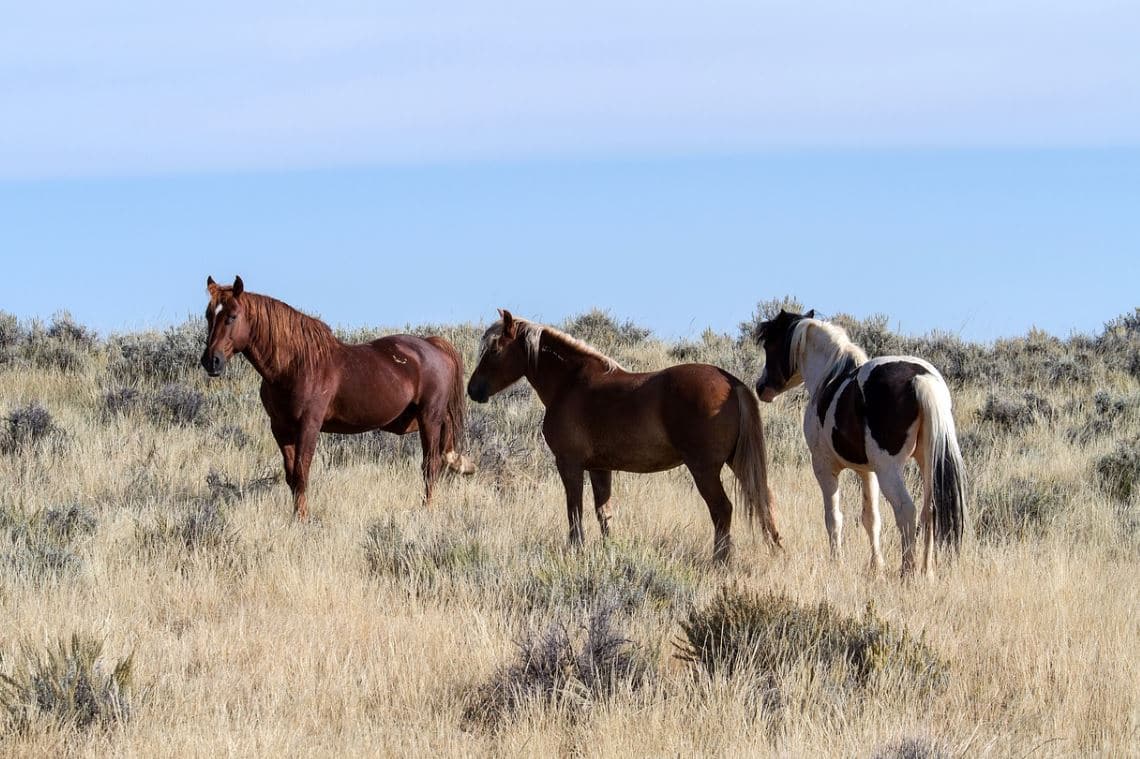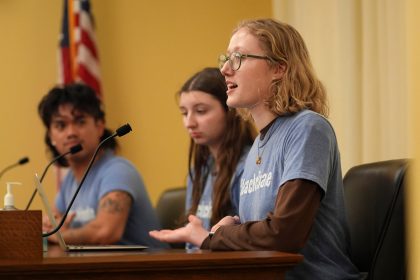Bipartisan Group of Lawmakers Push To Block Wild Mustang Capture

WASHINGTON — A bipartisan group of lawmakers wrote the House and Senate appropriations panels this week, asking them to withhold funding from a new Trump administration proposal to accelerate the capture of 130,000 wild horses across the west in the next decade.
The House and Senate versions of the Interior-Environment appropriations bill – which are currently being reconciled – each include funding for an untested pilot project that calls for a dramatic increase in roundups and removals.
The House bill provides $6 million in additional funding for the program while the Senate bill provides $35 million, and each bill includes language calling for total removal of 130,000 horses over the next decade.
But the authors of the letter, including House Natural Resources Chair Raúl Grijalva and House Judiciary Chairman Jarrold Nadler, say the White House plan has never been presented for consideration in the authorizing committees of jurisdiction.
In addition, they write, the plan, “would triple the number of horses and burros in holding, and could cost taxpayers billions.”
They also note concerns that the House and Senate report language “opens the door to surgical sterilization procedures” that face opposition “by many stakeholders, including veterinarians.”
The letters were sent to Sens. Lisa Murkowski, R-Alaska, and Tom Udall, D-N.M., chair and ranking member respectively of the Senate Appropriations Subcommittee on Interior, Environment, and Related Agencies; and Reps. Betty McCollum, D-Minn., and David Joyce, R-Ohio, the chair and ranking member respectively of the House Appropriations Subcommittee on Interior, Environment, and Related Agencies.
The authors urge limiting new funding for the pilot program to the $6 million contained in the House bill; clarification of report language so new funding can be used solely on implementing the Porcine Zone Pellucida fertility control vaccine; and ensuring prohibition of any appropriated funds to conduct surgical sterilization procedures.
The proposal to speed roundups is based on a comprehensive package of proposals offered in April by a coalition of livestock industry interests and animal welfare advocates, including the American Society For the Prevention of Cruelty to Animals and Humane Society of the United States.
Among those signing the letter to the appropriators were Reps. Deb Haaland, D-New Mexico, chair of the Interior subcommittee on national parks, forests and public lands, Joe Neguse, D-Colo, Dina Titus, D-Nev. and California Democrats Grace Napolitano and Tony Cardenas. Two Republicans signed on — David Schweikert of Arizona and Matt Gaetz of Florida.
The animal welfare groups have said they’re willing to accept the accelerated roundups in some overpopulated areas to stave off the possibility Congress might drop current prohibitions on the use of federal money for slaughter.
Groups like the National Cattlemen’s Beef Association and American Farm Bureau Federation have pushed for the slaughter of excess horses that compete for forage with livestock grazing on U.S. lands.
But the Trump plan has been condemned by the largest mustang protection groups in the West that say it could lead to the extinction of the free-roaming animals.
They also contend the policy would be the most sweeping change in federal protections for mustangs and burros since President Richard Nixon signed them into law nearly a half century ago..
“If this ghastly proposal is executed, we’ll see massive roundups, swelling captive wild horse populations, and jubilation from the National Cattlemen’s Beef Association that secured political cover from the Humane Society of the U.S., Humane Society Legislative Fund, and ASPCA for their long-time aspiration to cement a government-funded wild horse depopulation program,” said Marty Irby, executive director at Animal Wellness Action.
Rep. Dina Titus, D-Nev., in whose district about half the wild mustangs live, said the government is “shifting resources away from scientifically sound birth control programs and wasting limited resources on costly and dangerous roundups and holdings which only exacerbate population growth.”
The Bureau of Land Management estimates there are 88,000 animals on U.S. rangeland in 10 western states and nearly 47,000 in government holding pens and pastures. They agency contends the range can sustain only 27,000 but critics say there’s no scientific basis for that conclusion.
“We commend Chairman Raul Grijalva and his colleagues for seeking restrictions on a plan that, if implemented as described, would decimate America’s federally-protected wild horse and burro populations over the next decade,” said Suzanne Roy, executive director of the American Wild Horse Campaign.
“We are deeply grateful to the Congressman for continuing his long-standing work as a great champion for wild horses, and to the other members and the vast majority of Americans who oppose mass helicopter roundups and removals, barbaric surgical sterilization, and inhumane treatment inflicted on wild horses and burros by the federal government,” Roy said.

























